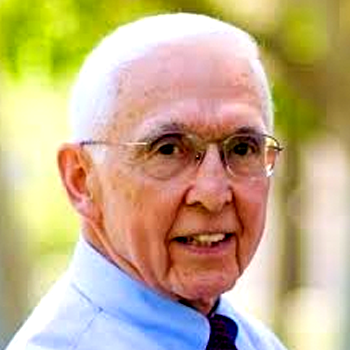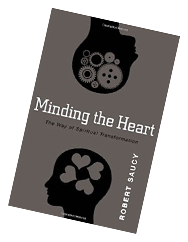Back to series


Recommended Reading:

Moving Beyond Forgiveness to an Abundant Life
Click here to open a Print - Friendly PDF
No one is going to catch me and make me a man.” So said Peter Pan, a fictional character who never grew up from childhood. Though he had exciting adventures in Neverland with fairies, pirates, and mermaids, soon enough other children in the story grew up to be adults, even Wendy, Peter’s dear companion. At the tearful ending of the book, she said to him, “I grew up long ago.” Peter protested, “You promised not to!” To which she retorted, “I couldn’t help it.”
Written by J.M. Barrie more than a hundred years ago and still a popular children’s story, Peter Pan is often associated with escapism, or even developmental disorder. Growing up is a fundamental fact of human existence.
Change simply happens. Life is a constant progression (or regression), both in the body and the inner person. We see and feel change in our bodies, but in the inner person, change is often subtle, giving an illusion that we’re somehow standing still. But we are changing even when we are not aware of it.
 When it comes to the life of the person who believes in Jesus Christ, that change should ever be upward. In the same way that we are born physically to grow to maturity, we are born again spiritually to grow to maturity. We are not born again just so we can be in heaven someday, but we are born from above by the Spirit of God to actually live a brand-new life in Christ now. A life that grows.
When it comes to the life of the person who believes in Jesus Christ, that change should ever be upward. In the same way that we are born physically to grow to maturity, we are born again spiritually to grow to maturity. We are not born again just so we can be in heaven someday, but we are born from above by the Spirit of God to actually live a brand-new life in Christ now. A life that grows.
The message of Scripture is that our life in Christ is more than the forgiveness of sins, more than the escape from God’s condemnation, but a new way to live, a new source of zest that thirsts and hungers for more.
All too often, sincere believers find themselves trying the usual Christian practices — reading the Bible, attending church, praying — with little, if any, success. Disappointed and defeated, they wonder: “Why is nothing really different? The same fears and anxieties are with me. My attitudes and actions toward things don’t seem to be any different. What do I have to do to experience more of this new life? How does it all work?”
Believers want more than knowledge of biblical and theological doctrines. They want to experience God. They want to know how this new life operates. They want to know how they can grow in this new life. Like all important areas of our life — physical, intellectual, and ethical — spiritual growth involves time and effort. It is a process, and Scripture gives light to the means of growth and the dynamic operations of these means.
Born to Grow
 The gospel is not only the “Good News,” but the “best news” anyone could ever receive. Through simple faith in Jesus Christ, God’s Son, a person can be born again into a new life, an eternal life.
The gospel is not only the “Good News,” but the “best news” anyone could ever receive. Through simple faith in Jesus Christ, God’s Son, a person can be born again into a new life, an eternal life.
Unfortunately, the meaning of “eternal life” is lost to many Christians. Instead of conceiving eternal life in terms of its quality, their thought is more on its quantity – the fact that it lasts forever. This is certainly understandable. Our sins are forgiven and we are given Christ’s righteousness. Consequently, we are freed from God’s wrath and sin’s punishment of eternal death – thus we live forever.
Our new relationship with God, as children freed from His wrath, is correctly seen by believers as the foundation of the Christian life. But for too many Christians the matter ends there. Radical transformation of our life takes place only when we meet Christ. Yet in the meantime we live as heaven-bound, forgiven sinners with very little expectation of any real change in the quality of our life and our behavior, except perhaps for some reduction in the most blatant outward forms of sin.
Scripture paints a totally different picture. Our “new birth” is the starting point of a continuous process of growth in a new kind of life. As “newborn babies,” we are told to “crave pure spiritual milk, so that by it you may grow up in your salvation” (1 Peter 2:2 NIV). In the words of a song by the popular rock band Switchfoot, “There’s a new way to be human.” This new kind of life is the quality of life lived first by Jesus Christ and subsequently by those who’ve known Him well and followed Him closely.
The apostle Paul exemplified this in his own life. Meeting Christ on the road to Damascus was only the beginning of his new life. His passion was to “gain Christ” and to “know Him” (Phil. 3:8, 10). The Christian life for Paul was not simply waiting and hoping for his final perfection. Rather, as he expressed it, “I press on to take hold of that for which Christ Jesus took hold of me.… Forgetting what is behind and straining toward what is ahead, I press on toward the goal to win the prize for which God has called me heavenward in Christ Jesus” (Phil. 3:12–14 NIV).
 In saying that he “pressed on” Paul uses strong language, a Greek word that refers to zealous pursuit. From the time that Christ laid hold of him, his life took off in a completely new direction. He would not allow either his past failures or achievements to divert him from his pursuit of Christlikeness. We “are being transformed into ... [Christ’s] image with ever-increasing glory” (2 Cor. 3:18 NIV).1
In saying that he “pressed on” Paul uses strong language, a Greek word that refers to zealous pursuit. From the time that Christ laid hold of him, his life took off in a completely new direction. He would not allow either his past failures or achievements to divert him from his pursuit of Christlikeness. We “are being transformed into ... [Christ’s] image with ever-increasing glory” (2 Cor. 3:18 NIV).1
Our growth as believers is a continuous process. This is underscored by the frequent use of Greek present-tense verbs that denote continuous action. In the verse above, 2 Corinthians 3:18, and in Romans 12:2, “Be transformed by the renewing of your mind,” the word translated as “transformed,” literally means, “be continually being transformed.” Likewise, we are to be “renewed [continually] in the spirit of our mind” (Eph. 4:23; see also Col. 3:10).
Moreover, our present outward life, which C.K. Barrett has described as “subject to a thousand troubles and under sentence of death,”2 may be trending downward, but our inner person is designed to continually grow. “Though outwardly we are wasting away, yet inwardly we are being renewed day by day” (2 Cor. 4:16 NIV).
God’s design for our continuous spiritual growth can be both encouraging and challenging. On the one hand, it is encouraging to know that though our physical bodies are going through wear and tear, our spiritual life can still go from strength to strength. On the other hand, this is a challenge, because it does not allow any excuse for complacency or neglect or being “too old” to make any spiritual progress.
 The growth of believers as a continuous process is also underscored by Scripture’s use of the imagery of “journey.” A journey is more than developing a good road map or having knowledge to navigate the way, that is, it’s more than constructing a philosophy or theology of life. It is the actual travel on the road, the living of this new life. A journey is more than its destination. As Derek Kidner put it, the “path of life” (Ps. 16:11) is so called, “not only because of its goal but because to walk that way is to live, in the true sense of the word, already.”3
The growth of believers as a continuous process is also underscored by Scripture’s use of the imagery of “journey.” A journey is more than developing a good road map or having knowledge to navigate the way, that is, it’s more than constructing a philosophy or theology of life. It is the actual travel on the road, the living of this new life. A journey is more than its destination. As Derek Kidner put it, the “path of life” (Ps. 16:11) is so called, “not only because of its goal but because to walk that way is to live, in the true sense of the word, already.”3
In the ancient world, especially among nomadic people, life was lived on foot. They walked step by step along a “path” or “way” in search of food and water for their flocks and herds. As a result, walking became a metaphor for the journey of life. We are called “to live [our lives] before God in such a way that every single step is made with reference to [him] and every day experiences him close at hand.”4 To each of us, God says as He did to Abraham centuries ago, “Walk before me” (Gen. 17:1).
Walking, however, is never simply walking per se. It is always walking along a particular way. We can walk along “the way of the Lord” (Gen. 18:19) – “the way of the righteous” (Ps. 1:6; cf. Prov. 8:20; 2 Peter 2:21), “the path of life” (Ps. 16:11; Prov. 10:17), “the good way” (Jer. 6:16), and “the way of the truth” (2 Peter 2:2). Or we can tread the alternative route – “the way of the wicked” (Pss. 1:6;146:9), the “dark and slippery” way (Ps. 35:6), and “the false way” (Ps. 119:104, 128).
The point is that each one of us is on our own spiritual journey, always walking, always stepping, always moving along a path. One path is like the “light of dawn, that shines brighter and brighter until the full day” (Prov. 4:18), while the other is a path of pain and grief and ultimately final destruction (Ps. 1:6). Thus we need to pray with the psalmist: “Search me, O God, and know my heart; try me and know my anxious thoughts; and see if there be any hurtful way in me, and lead me in the everlasting way” (Ps. 139:23–24).
The picture of continually walking may be unpleasant and tiring to us. To constantly pay attention to our next step — always thinking about whether it’s along the path of life or along the way of destruction — takes a lot of thought and effort. Wouldn’t it be nice just to be able to get off the road and relax for a while? Or, as someone put it, “Lord, please give me the vacation of a second!”
We may never have thought of the Christian life in this way. But in reality, we may be practicing it by relegating our spiritual walk to well-defined religious activities such as church attendance, group Bible studies, and personal times of “devotion.” The rest of our life — whatever else consumes our time — is not part of the journey. It’s a vacation. It doesn’t count.

This is contrary to Scripture. In God’s eyes, our journey includes all of our life. We are always on our journey, making decisions and taking steps in one direction or another. Even when we avoid deciding about something, we are deciding, taking a step in some direction - no decision is a decision.
Thus our spiritual growth or heart transformation includes all of the activities of our life-work, family life, social life, recreation, physical exercise (if we do it), and so on. Later we will see that changing our heart involves changing our thoughts, emotion, and will and thus our actions to conform to the thoughts, emotions, and will of God. Since these functions are continually active in our life, there is no aspect of our life that is not involved in our transformation.
The Scriptures say, “Whether, then, you eat or drink or whatever you do, do all to the glory of God” (1 Cor. 10:31). As the goal of our life is to live to the glory of God, this is also the goal of our spiritual transformation. As such, therefore, no matter where we are or what we are doing, we are either nourishing and strengthening our new life or weakening and stunting it.
In many ways, the new life of the Christian is like all of life. According to Erwin Schrödinger, the Nobel Prize–winning physicist, something is considered to be alive “when it goes on ‘doing something,’ moving, exchanging material with its environment, and so forth.” A living organism avoids decay and death, only “by eating, drinking, breathing and (in the case of plants) assimilating” life-nourishing elements from outside itself. This continuous process is called metabolism, which comes from the Greek word metaballein, meaning change or exchange.5
Plants absorb light and other elements from the atmosphere. They extend their roots into the soil in search of nutrients and moisture in order to sustain life and to grow. Animals also look for similar life-giving provisions. In the same manner, human life is a continual metabolism, drawing in life from outside of ourselves. One of the key Hebrew words related to human nature, nefesh, is often translated “soul.” The term depicts the human person as a being of desires, drives, and appetites that must be fulfilled in order to be alive.6 In short, it is our very nature to live by hungering and thirsting for nourishment from sources beyond ourselves.
However, we do not always take in what is good for us or what is truly life-enhancing. For example, a glazed donut and a rich, bold cup of coffee gives a surge of life, but the subsequent letdown lets us know that some “life sources” can be specious. Nevertheless, as long as we’re alive, this fundamental process of drawing life from outside of ourselves never ceases. We’re continually taking in either healthy nourishment that promotes life and growth or imbibing harmful toxic material that leads to sickness and death.
This reality in our physical life is equally valid in our spiritual life. Understanding this truth is vital for understanding our spiritual growth. We are continually assimilating from our environment either true life from our Creator/Redeemer, or counterfeit “life” from the Deceiver, which is no life at all. As we will see later, it is the very nature of our heart — our inner person — to be open to outside influence that shape and form who we really are. It is no wonder that Scripture urges us to “watch over your heart with all diligence, for from it flow the springs of life” (Prov. 4:23).
Growth in the Life of God
 But what does this spiritual growth in our new life look like? How do we know if we are really growing? Are we growing in our spiritual life when we gain more Bible and theological knowledge? Does growth mean increased faithfulness in Christian practices – Bible reading, church attendance, witnessing, good behavior, loving actions and so forth? Or does spiritual transformation mean more religious feelings, more zeal and passion in worship, or more “spiritual” experiences?
But what does this spiritual growth in our new life look like? How do we know if we are really growing? Are we growing in our spiritual life when we gain more Bible and theological knowledge? Does growth mean increased faithfulness in Christian practices – Bible reading, church attendance, witnessing, good behavior, loving actions and so forth? Or does spiritual transformation mean more religious feelings, more zeal and passion in worship, or more “spiritual” experiences?
All of these things may be evidences of growth. But they also could be of our own doing rather than actually flowing from our new life. Genuine spiritual growth is an increase in the experience of the new life of which Jesus spoke when he said, “I came that they may have life, and have it abundantly” (NASB) or “life in all its fullness” (John 10:10 GNT). Or as Paul described it, “life indeed” (1 Tim.6:19 NASB) or “that which is truly life” (ESV).
This new life is the indestructible life of the living God himself. It is Christ’s life lived in us as our own life – this is what the apostle had in mind when he wrote “Christ, who is our life” (Col. 3:4) and said of himself “it is no longer I who live, but Christ lives in me” (Gal. 2:20). In short, it is Christ’s life produced in us by the “Spirit of life” (Rom. 8:2; cf. 8:6; Gal. 6:8).
Our natural human life manifests itself in thoughts, feelings, and actions. The more we think, feel, and act, the more we are alive. These same capacities are also the means through which our new life is expressed. Our new life in God is also evident in thoughts, feelings, and actions that are according to the pattern of God’s life. Instead of confused thoughts, feelings, and desires that are corrupted by the patterns of this world and complicated by the burden of guilt and depression, in our new life in God, we think Christ’s thoughts, feel his emotions, and live our life as it was designed by our Creator.
 According to the Scripture, Christ has made it possible for us to “become partakers of the divine nature” (2 Peter 1:4). We are becoming like God in “life and godliness,” taking on a divine quality of life that exhibits a godly moral walk, as opposed to the “corruption” or destructive decay of the world (2 Peter 1:3–4) – a life that increasingly reflects “the image of God” we were created to embody as human beings.
According to the Scripture, Christ has made it possible for us to “become partakers of the divine nature” (2 Peter 1:4). We are becoming like God in “life and godliness,” taking on a divine quality of life that exhibits a godly moral walk, as opposed to the “corruption” or destructive decay of the world (2 Peter 1:3–4) – a life that increasingly reflects “the image of God” we were created to embody as human beings.
We are also said to be “partakers of Christ” (Heb. 3:14; see also 1 Cor. 1:9) and participate (or fellowship) in the Spirit (Phil. 1:2; 2 Cor. 13:14). All of this does not mean that growing spiritually is becoming a divine being. No, God will always be God and we will always be human. But what it means is that God through His Spirit is continually working to form us into Christlikeness. Like an embryo develops into the form of a human, so our new life is gradually taking the shape of Christ’s life (Gal. 4:19).
What this new life looks like is therefore exemplified in the human earthly life of Christ. It is also seen in the many instructions and commands for our life and the biblical examples of the lives of many godly men and women. Perhaps there is no better description of this life than the qualities described as the “fruit of the Spirit” who is himself “the Spirit of life” – “love, joy, peace, patience, kindness, goodness, faithfulness, gentleness, self-control” (Gal. 5:22–23). These are rightly termed “fruit,” for they are the produce or product of the “Life-Giver,” rather than human manufacture.
The understanding of this Spirit-produced life is enhanced when we consider its opposite described as “the deeds of the flesh,” or the dysfunctional outcome of living apart from the life of God – “immorality, impurity, sensuality, idolatry, sorcery, enmities, strife, jealousy, outbursts of anger, disputes, dissensions, factions, envying, drunkenness, carousing, and things like these” (Gal. 5:19–21). As Christians, we are not totally free from these old “deeds of the flesh.” But at the core of our being, our heart, the life of God through the Spirit is implanted and designed to grow the fruit of the Spirit.
Abundant Life
 The new life in Christ through the Spirit characterized by love, joy, and peace expresses itself in various ways depending on our personality type. But whether we are affable, melancholic, cranky, pragmatic, or any combination thereof, this life is an abundant life (John 10:10) – it will always have a certain enthusiasm.
The new life in Christ through the Spirit characterized by love, joy, and peace expresses itself in various ways depending on our personality type. But whether we are affable, melancholic, cranky, pragmatic, or any combination thereof, this life is an abundant life (John 10:10) – it will always have a certain enthusiasm.
The Bible describes it as “living water” that satisfies and brings renewed vitality - a picture that had powerful meaning in arid biblical lands (Ps. 63:1; Jer. 2:13).
The psalmist described God as the “fountain of life” who gives his people “drink [from] … the river of [his] delights” (Ps. 36:8–9). Jesus offered “living water” to the Samaritan woman, telling her that it becomes “a well of water springing up to eternal life” in everyone who drinks of it ( John 4:14).
Eugene Peterson captured the exuberance of the Greek expression “springing up”7 in his paraphrase: “The water I give will be an artesian spring within, gushing fountains of endless life” (MSG). An artesian spring has ground water that flows upward by natural pressure, without any need for pumping. The new life is life that bubbles up – it just flows.
Jesus later describes this life bubbling up in the believer’s heart as flowing out as rivers of living water in love and service to others (John 7:38). Leon Morris aptly summed up the zest of this life: “The life that Jesus gives is no tame and stagnant thing. It is much more than merely the entrance into a new state that of being saved instead of lost. It is the abundant life ([John] 10:10), and the living Spirit within people is evidence of this … When the believer comes to Christ and drinks, that believer not only slakes his thirst but receives such an abundant supply that veritable rivers flow from him.”8 Our salvation is not only from sin, but also to newness of life.
In short, our new life in Christ — and the transformed lifestyle it produces — should be felt in our daily experience in increasing measure during our journey on earth. According to the Bible, that’s exactly what God intended. Unlike Peter Pan, we can indeed, and in fact must, grow up. And Scripture tells how.
Excerpted with permission from Minding the Heart: The Way of Spiritual Transformation by Robert Saucy. Published by Kregel Publications (September 19, 2013).
|
Notes: |

Robert Saucy
ProfessorRobert Saucy, (1930 – 2015) was an American Biblical scholar and professor of systematic theology. He earned both his Th.M. (1958) and Th.D. (1961) in Systematic Theology at Dallas Theological Seminary. In 1961, Saucy joined the faculty of Talbot School of Theology, where he was appointed distinguished professor of systematic theology in 1989. He was a long-time member of the Evangelical Theological Society, and served as its president in 1972. Saucy was one of only three scholars who worked on both the original 1971 translation of the New American Standard Bible as well as the 1995 update. He was also a faculty member at Rosemead Graduate School of Psychology from 1970 to 1977.

Recommended Reading:
Robert Saucy, Minding the Heart: The Way of Spiritual Transformation (Kregel Publications, 2013)
It is the heart that is the control center of life and through which God works to change us. But how does this growth take place? In Minding the Heart, Robert L Saucy offers insightful instruction on what spiritual transformation is and how to achieve it. He shows how renewing one’s mind through meditation, action, and community can begin the process of change, but ultimately the final change — the change that brings abundant life — can only come through a vital relationship with God. “The renewing of the heart is an inescapable human need,” writes Saucy, “but the solution lies only within the realm of the divine.” Drawing from inspiring Bible passages as well as select scientific studies, Saucy demonstrates how to make lasting change so Christians can achieve the joys of becoming more like Christ.
 COPYRIGHT: This publication is published by C.S. Lewis Institute; 8001 Braddock Road, Suite 301; Springfield, VA 22151. Portions of the publication may be reproduced for noncommercial, local church or ministry use without prior permission. Electronic copies of the PDF files may be duplicated and transmitted via e-mail for personal and church use. Articles may not be modified without prior written permission of the Institute. For questions, contact the Institute: 703.914.5602 or email us.
COPYRIGHT: This publication is published by C.S. Lewis Institute; 8001 Braddock Road, Suite 301; Springfield, VA 22151. Portions of the publication may be reproduced for noncommercial, local church or ministry use without prior permission. Electronic copies of the PDF files may be duplicated and transmitted via e-mail for personal and church use. Articles may not be modified without prior written permission of the Institute. For questions, contact the Institute: 703.914.5602 or email us.
-
Recent Podcasts
Ralph Waldo Emerson’s Philosophy and Influence
by David George Moore on July 26, 2024Ralph Waldo Emerson was a gifted nineteenth century...Read More
-
The Side B Stories – Nate Sala’s Story
by Jana Harmon, Nate Sala on July 19, 2024
-
Terrorism Through the Eyes of Faith
by Dennis Hollinger on July 12, 2024
-
Recent Publications
Hasn’t Science Proven That Belief in God Is an Outdated Superstition?
by Sharon Dirckx on July 1, 2024Many assume that scientific practice and belief in...Read More
-
Has the Bible Been Corrupted as Some Muslims Claim?
by Andy Bannister on June 1, 2024
-
Seeing Jesus Through the Eyes of Women
by Rebecca McLaughlin on May 15, 2024
0
All Booked
0.00
All Booked
0.00
All Booked
22194
C.S. Lewis’s The Abolition of Man Live Online Small Group 8:00 PM ET
https://www.cslewisinstitute.org/?event=c-s-lewiss-the-abolition-of-man-study-course&event_date=2024-10-02®=1
https://www.paypal.com/cgi-bin/webscr
2024-10-02

Next coming event
Days
Hours
Minutes
Seconds
C.S. Lewis’s The Abolition of Man Live Online Small Group 8:00 PM ET
On October 2, 2024 at 8:00 pmSpeakers

Robert Saucy
Professor
Team Members

Robert Saucy
ProfessorRobert Saucy, (1930 – 2015) was an American Biblical scholar and professor of systematic theology. He earned both his Th.M. (1958) and Th.D. (1961) in Systematic Theology at Dallas Theological Seminary. In 1961, Saucy joined the faculty of Talbot School of Theology, where he was appointed distinguished professor of systematic theology in 1989. He was a long-time member of the Evangelical Theological Society, and served as its president in 1972. Saucy was one of only three scholars who worked on both the original 1971 translation of the New American Standard Bible as well as the 1995 update. He was also a faculty member at Rosemead Graduate School of Psychology from 1970 to 1977.






